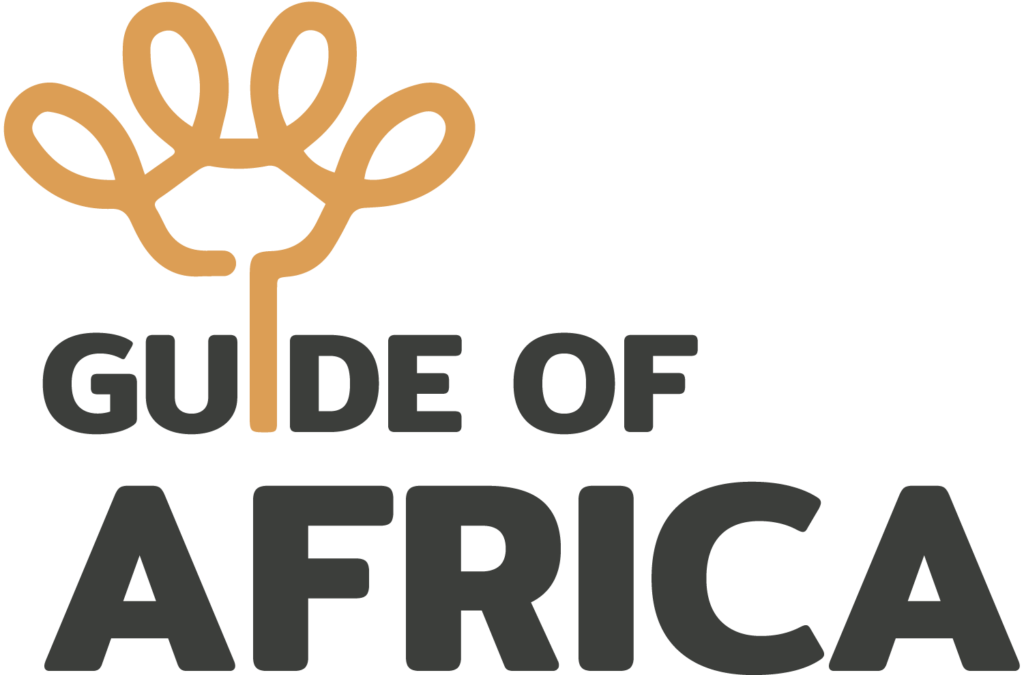In the heart of Southern Africa, where the arid plains meet a miraculous water oasis, lies one of the most spectacular natural wonders of the world—the Okavango Delta. Known as the “river that never finds the sea,” the Okavango River spills its waters over the Kalahari Desert sands, creating a unique inland delta celebrated for its lush wildlife and captivating landscapes. This breathtaking ecosystem is not only the heart of Botswana’s natural heritage but also a pivotal sanctuary for diverse flora and fauna that rely on its seasonal floodwaters.
Table of Contents
A Unique Hydrological Marvel
The Okavango Delta is a geological anomaly; unlike most river deltas, which lead to the ocean, it is landlocked, its waters ultimately evaporating and transpiring away. This peculiarity results from tectonic activity that prevents the river from flowing beyond the Kalahari Basin. Each year, approximately 11 cubic kilometers of water flood the delta, spreading over up to 15,000 square kilometers during the peak months of July and August. This seasonal flooding, which originates from the Angola highlands and travels over 1,000 kilometers, coincides with Botswana’s dry season, transforming the landscape into a vibrant, dynamic haven for wildlife.
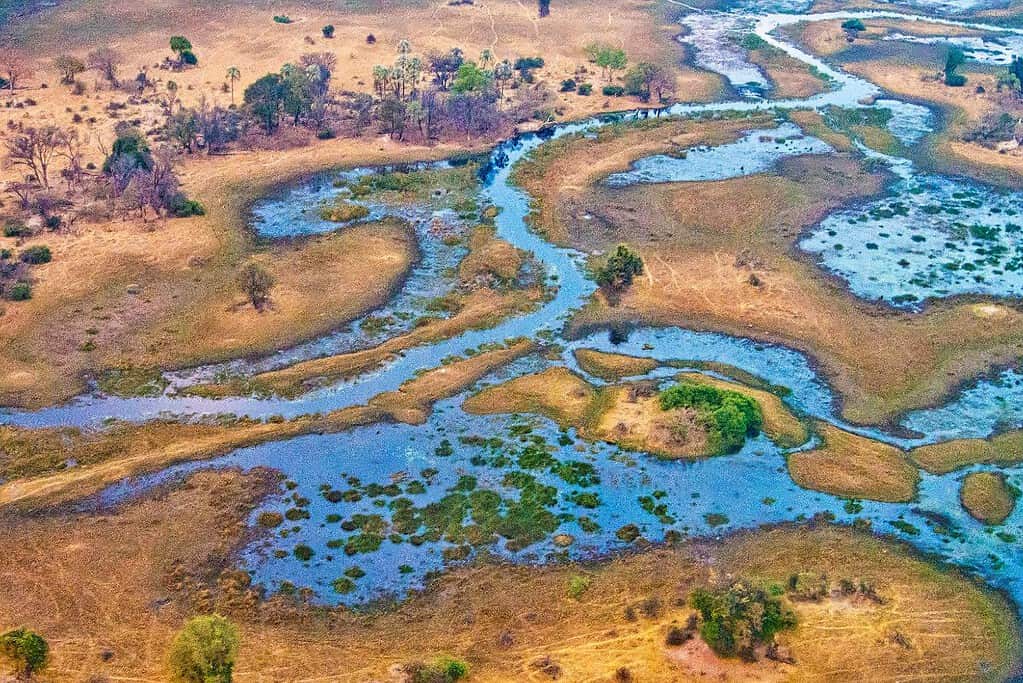
A Sanctuary for Wildlife
The delta’s floodwaters create a refuge of life in what would otherwise be a desert environment. This abundance of water supports a rich variety of animals, including large populations of the African elephant, buffalo, hippopotamus, and antelope. The area is one of the few strongholds for endangered species such as the cheetah, white rhinoceros, and the African wild dog.
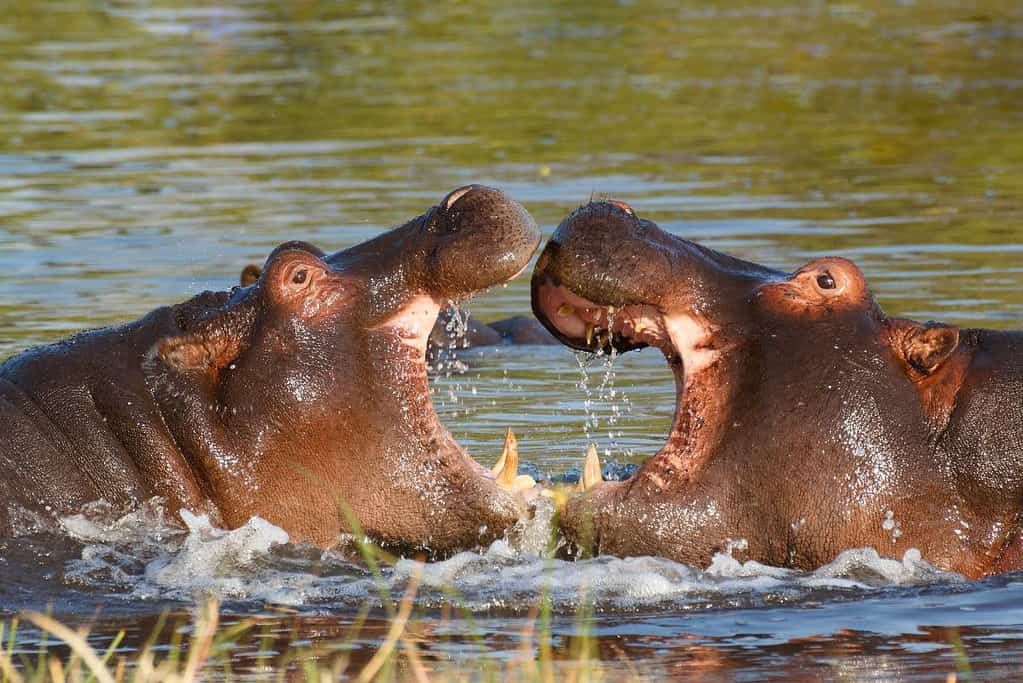
Birdlife in the Okavango is prolific and diverse, making it a paradise for birdwatchers. Over 400 species of birds make their home here, from the majestic African fish eagle to the tiny, jewel-like malachite kingfisher. The seasonal influx of water also attracts numerous migratory bird species, enhancing the region’s biodiversity several-fold during the flood months.
The Human Connection
The delta is not only significant for its natural features but also for its cultural importance. Several communities depend on the Okavango Delta for their livelihoods. These communities, predominantly composed of the Bayei, Hambukushu, and Dceriku tribes, have adapted their lifestyles to the rhythms of the delta. Traditional practices such as fishing, reed harvesting for craft making, and mokoro (dugout canoe) building are intertwined with the ecological cycles of the Okavango.
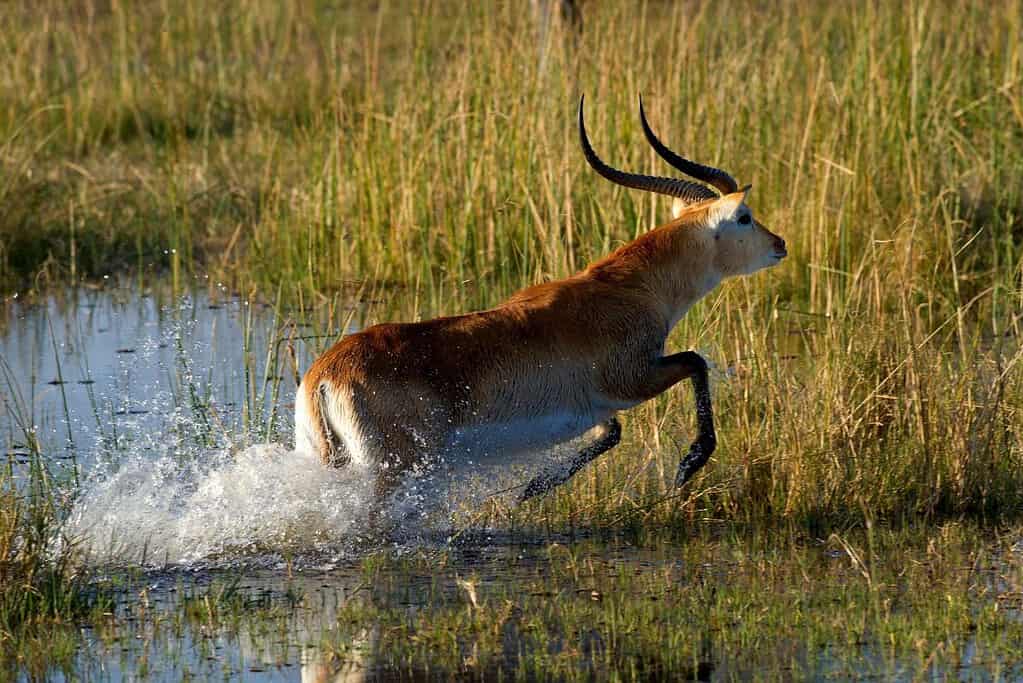
Moreover, the Okavango Delta is a cornerstone of Botswana’s economy due to its contribution to the tourism sector. Ecotourism has flourished, offering sustainable income opportunities for local communities while promoting wildlife conservation. Tourists flock to this region to experience its untouched landscapes and extraordinary wildlife through activities like safari drives, mokoro trips, and guided nature walks.
Conservation Efforts
The preservation of the Okavango Delta is critical. Recognized as a UNESCO World Heritage Site in 2014, the delta is subject to numerous conservation initiatives aimed at maintaining its biodiversity and reducing the impact of human activities. These efforts are particularly important in the face of challenges such as climate change, which threatens to alter the timing and magnitude of the annual floods, and poaching, which endangers the area’s wildlife.
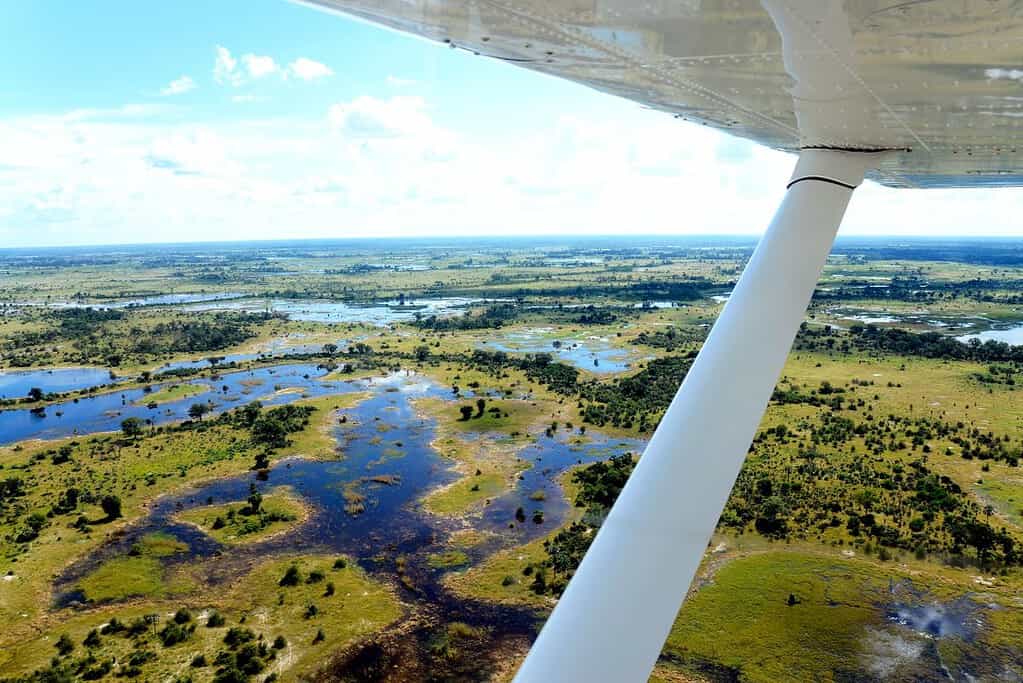
Organizations like the Okavango Wilderness Project and local community trusts work in tandem to monitor wildlife populations, promote sustainable resource management, and implement anti-poaching measures. The integration of scientific research with traditional knowledge also plays a vital role in the adaptive management strategies essential for the delta’s survival.
The Delta in the Wider Ecosystem
The health of the Okavango Delta is intrinsically linked to the broader landscape of the Okavango catchment area, which extends into Angola and Namibia. Efforts to protect the delta must consider the entire catchment area to ensure that upstream activities do not compromise the downstream flows. Transboundary water management agreements are crucial in this regard, fostering cooperation among the countries sharing this vital water resource.
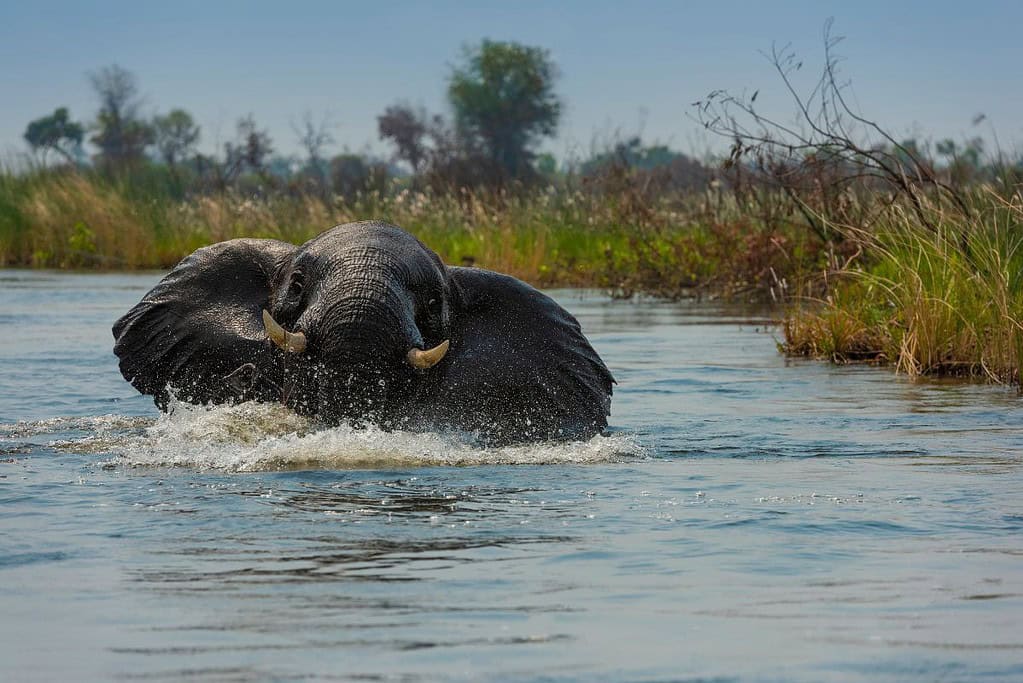
Experiencing the Delta
For those fortunate enough to visit the Okavango Delta, the experience is nothing short of magical. The best times to visit are during the dry winter months from May to October, when the delta floods and wildlife is easier to spot. Accommodations range from luxury lodges to rustic campsites, providing something for every type of traveler.
Safari experiences in the Okavango Delta are particularly unique due to the combination of land and water activities. Visitors can explore the intricate waterways by mokoro, encounter wildlife up close on guided walking safaris, or view the sprawling delta landscapes from a light aircraft. Each mode of exploration offers a different perspective on this intricate ecosystem.
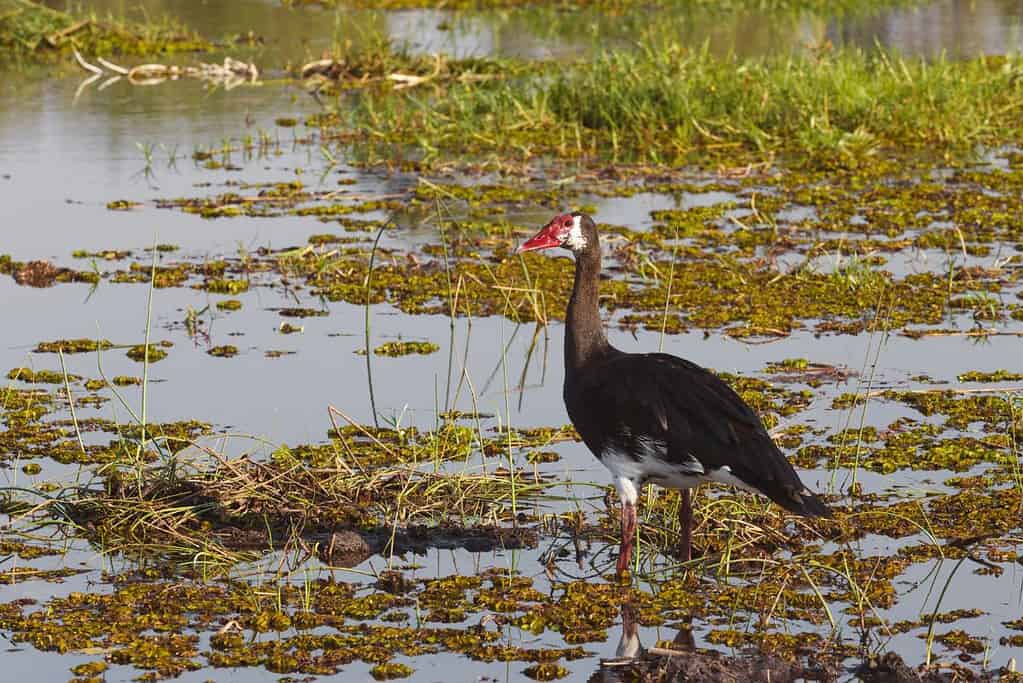
Ecological Tourism: A Path Forward
Ecotourism is a powerful tool in the conservation arsenal for the Okavango Delta. By providing a sustainable economic alternative, it helps to alleviate pressure on natural resources from traditional practices such as overfishing and unregulated hunting. Moreover, ecotourism raises awareness among visitors about the importance of conservation and the threats facing such unique ecosystems.
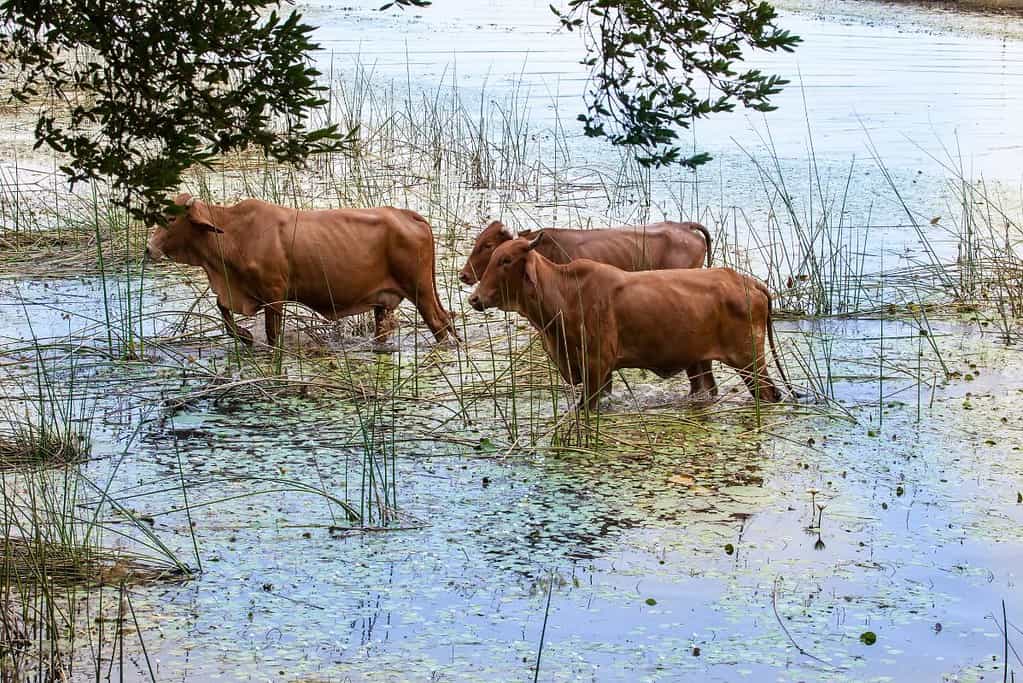
Tourism operators in the delta are increasingly adopting eco-friendly practices, such as using solar power and implementing waste reduction systems. These initiatives not only minimize the ecological footprint of lodges and camps but also set a standard for responsible tourism that can be replicated in other sensitive environments.
Conclusion
The Okavango Delta stands as a beacon of biodiversity and a testament to the wonders of the natural world. It encapsulates the essence of wild Africa, with its rhythmic floods shaping the landscape and dictating the ebb and flow of life within it. Protecting this invaluable natural treasure will ensure that it continues to inspire and sustain life for many generations to come. For those who have walked its paths, paddled its waters, or simply marveled at its beauty from afar, the Okavango remains not just the heart of Botswana’s magical wetlands, but a pivotal chapter in the earth’s ecological narrative.
